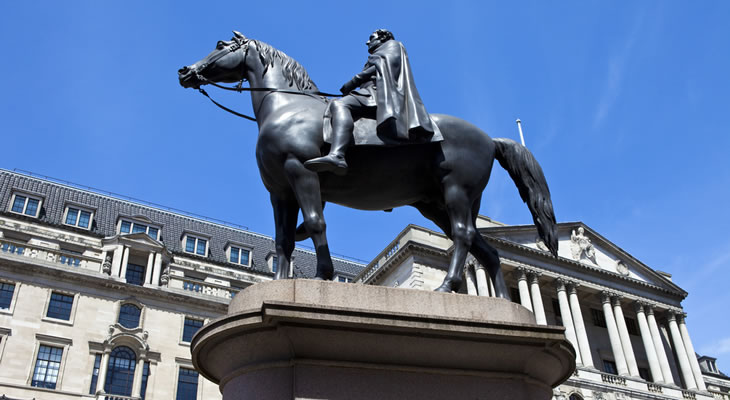The Pound to Rand exchange rate (GBP/ZAR) dropped by -0.7% on the afternoon of 23rd February.
Although Sterling made a brief rally during the day, it ultimately fell back because of dovish remarks from Bank of England (BoE) official Dave Ramsden.
Mr Ramsden emphasised how UK productivity levels (which have recently been poor) were being factored into future BoE policy decisions;
‘The weakness of, and uncertainty around, the path of UK productivity is a key driver…and is therefore a key consideration for monetary policy’.
(Last updated 23rd February, 2018)
The Pound to Rand (GBP/ZAR) exchange rate has made minimal gains on the afternoon of 22nd February, following concerning UK economic news.
As well as economic news weighing on the Pound, political developments have also held the GBP/ZAR exchange rate back.
Prime Minister Theresa May has been meeting cabinet ministers in the PM’s countryside retreat, Chequers.
Hopes aren’t high for a productive outcome, however, as analysts have factored individual ambitions and deep divisions on Brexit into the mix.
If the PM emerges from the retreat with some solid policies on Brexit and national development, a Pound to Rand rise may yet be salvaged.
(First published 22nd February, 2018)
BoE’s Treasury Committee Meeting Points to Pound to Rand Supporting UK Interest Rate Hikes
The Pound to South African Rand exchange rate (GBP/ZAR) has been tight on 22nd February, following the news that UK GDP growth has slowed by more than expected.
This represents a setback for the UK, but might not cause long-term damage to the GBP/ZAR exchange rate.
Still in the headlines today is news that the Bank of England (BoE) could be considering higher interest rates in the future, potentially three over the next three years.
Supporting the notion, BoE official Andy Haldane has said;
‘Historically the thing which has killed jobs has been central banks stepping on the brakes too late.
As [former Federal Reserve chair] Janet Yellen says, [economic] recoveries don’t die of old age, they die because central banks step on them, because they react too late.
We’re absolutely clear, we don’t want to go back there again because it is bad news for jobs’.
The Pound fluctuated during and after the meeting; if BoE plans for higher interest rates solidify then the GBP/ZAR exchange rate could see a noticeable improvement.
Future UK Inflation Rate Growth could Bring GBP/ZAR Exchange Rate Volatility
More concretely, the Pound to Rand exchange rate could also turn turbulent when UK inflation rate data is released on 20th March.
Current estimates for the February reading are for an increase from 3% to 3.2%, which will intensify the wage squeeze currently felt by UK households.
A greater wage squeeze means that consumers may spend selectivly, which could have the knock-on effect of lowering national retail sales and job losses.
BoE officials have suggested that they will take the plunge and raise UK interest rates if inflation continues to rise, so higher inflation could trigger a Pound to Rand rally.
Rand to Pound (ZAR/GBP) Exchange Rate Advance possible if Ramaphosa Prevents Credit Ratings Downgrade
The South African Rand has steadily appreciated against the Pound since President Jacob Zuma resigned and Cyril Ramaphosa took over as national leader.
Ramaphosa’s budget has just been released and it is hoped that new energy in the government could prevent a credit ratings downgrade and boost the Rand.
For the duration of Zuma’s term as President, which stretched from 2009 to 2018, South Africa saw its credit rating cut due to poor economic decisions.
This means that it is harder for the government to obtain overseas investment and borrow money from other nations, which raises risks in times of national emergency.
A sign of confidence in the South African economy under its new leadership will be no further downgrade of national credit ratings.
Even better would be upgrades of South Africa’s credit-worthiness, which may be significant enough to trigger Rand to Pound exchange rate rallies.
Falling South African Trade Surplus could Worsen ZAR/GBP Exchange Rate
More imminently, the South African Rand to Pound (ZAR/GBP) exchange rate could be influenced by the announcement of national trade balance levels on 28th February.
South African has maintained a trade surplus since February 2017, but current forecasts are for a reduction in the reading from ZAR15.72bn to ZAR10.05bn.
This would still leave the South African trade balance at a higher level than most of 2017’s readings, but might still be enough of a shock to cause a ZAR/GBP decline.


Comments are closed.